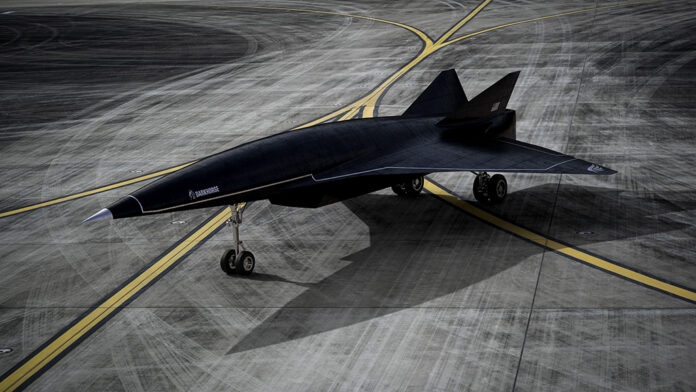Steve Case is excited about speed.
Specifically, a Mach 5 aircraft that will be capable of getting from New York to London in 90 minutes, about twice as fast as Concorde and five times the speed of current transatlantic flights.
But what gets Case, the co-founder of AOL, really excited is that Hermeus, the hypersonic aircraft he’s backing, was founded by a Georgia Tech graduate and is based in Atlanta—not New York or Silicon Valley.
“What they are doing is crazy,” Case said Thursday during an event at Pegasus Park, a campus in Dallas for biotech companies. The company is tapping into the knowledge and skills of Georgia Tech and the fact that Atlanta is a center for aerospace, he said. “There’s a reason to be there as opposed to 10 years ago when those graduates probably would have felt they had to go to California or some other place to start the company.”
The F100 will act as the turbine portion of our next turbine-based combined cycle engine named Chimera II. This engine will power Darkhorse. pic.twitter.com/Myc9SIn2V8
—Hermeus (@hermeuscorp) December 20, 2022
Hermeus is just one piece of a larger argument Case has been making for years. Now running investment firm Revolution, he invests in places outside of traditional venture hubs. It’s a move that seemed counterintuitive when all the money was to be made in Silicon Valley in the last decade, but now appears more prescient after the Covid-19 pandemic reshaped where people live, work and raise money in the U.S.
“It will end up being an important tipping point where there was an acceleration of startups in these ‘Rise of the Rest’ cities,” Case said in an interview, referring to his 2022 book and also the name of his fund at Revolution.
Case started Washington DC-based Revolution in 2005, a few years after stepping down as CEO of AOL, the media giant he built before merging the company in a much criticized move with Time Warner.
For the past decade, Case has been building up Revolution and making the case for injecting money outside of traditional venture capital powerhouses, making more than 200 investments across the U.S.
These include Carbon Robotics, a Seattle-based company that uses artificial intelligence to help farmers control weeds; there’s Meati Foods from Boulder, Colorado, while in Dallas, Revolution has backed Arcade, a platform to boost productivity of sales teams, and Gig Wage.
The San Francisco Bay area, New York City and Boston continue to be dominant in venture capital. The three areas collectively made up about half of total venture investment in 2022, according to Dealroom. But Texas, which received just 2% of all venture capital funding nationally about 10 years ago, is now at 4%, Case said, citing the impact of the pandemic.
The Sunbelt has been aggressive in luring major corporations, frequently offering plentiful space, lower living costs and zero income taxes. Tesla Inc. relocated its headquarters from Palo Alto to Austin in 2021, software company Anaplan Inc. announced Wednesday it will move its headquarters to Miami after 10 years in San Francisco and Oracle Corp. moved its headquarters out of Redwood City to Austin in 2020.
While there’s been a frenzy of headlines around major corporate moves, the startup scene has been less recognized in places like Dallas. Case said legacy companies will need to partner with startups to create the future digital economy.
“Often we see in cities that there’s sort of this divide where startups are over here, the big companies over there and not much happens in between,” he said. “That’s a missed opportunity.”
This article was provided by Bloomberg News.


